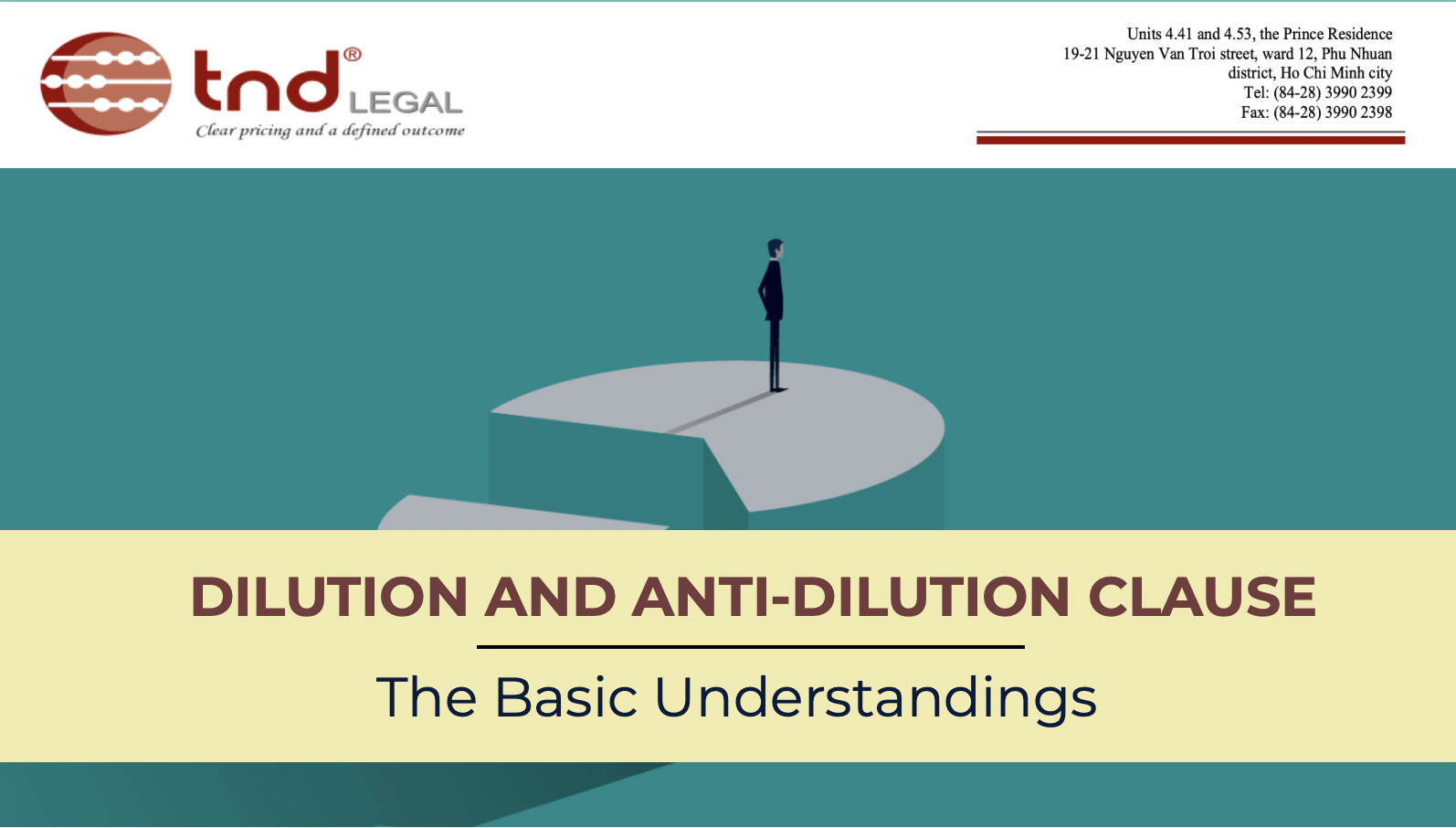Issue 1/Volume 2
Nguyen Quoc BAO
Abstract
Anti-dilution clause can be considered as an inherent clause of any investment agreement. Nonetheless, this is not a familiar concept for private companies in Vietnam. This article shall discuss and analyse the very intrisic features of dilution and anti-dilution clauses, suggesting how these concepts should be incorporated into an agreement.
Keyword: Dilution, Anti-dilution
INTRODUCTION
Dilution occurs whenever the target company calls upon investment from new investors. Dilution adversely affects the founders (or existing shareholders) in the sense that their interests are jeopardised due to the ownership proportion being subsided. A dilution event may take a variety of forms but all of which end up with either (i) percentage dilution or (ii) economic interest dilution. While a mere percentage dilution would not be a serious concern of the founders, economic interest dilution is the primary target of the anti-dilution clause.
It is worth noting that dilution is not conceptualised under the laws of Vietnam, at least in a so explicit manner. Therefore, this notion is primarily governed by contractual arrangements. It means that one must be proactive in recognising the dilution event and its impact in the course of concluding a deal.
This article is not purported to bring about a comprehensive analysis on how dilution and anti-dilution clauses operate and interact in a deal structure. Rather, it is only dedicated to elaborating the very intrinsic understandings of those prominent issues so as to allow the readers to familiarise themselves with these concepts. Henceforth, this article excludes the public company from its coverage. In light of the foregoing, it commences with the analysis of each particular kind of dilution and then moves forward to the anti-dilution clause ecosystem.
READ FULL ARTICLE HERE.
This article is a joint publication between TND Legal and Kien Thuc Phap Ly.

